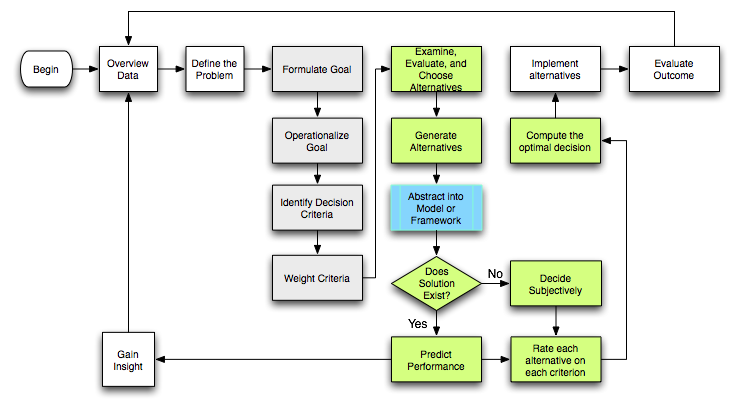Making the right choices. Making good decisions. Clear and simple strategies for making decisions after brain injury.
While researching last weeks article on Changed Decision-Making After Brain Injury I came across a blog; Brain Injury Self Rehabilitation by Edie a Registered Nurse. Edie had a brain injury following an assault while at work and had written the article below – full of helpful tips to assist making decisions after brain injury.
Simple tips on decision making when life is so indecisive after brain injury
If you are over 18 there are no safeguards to help with your decision making. If you make the wrong decision you are held responsible. It doesn’t matter that your clarity of thought is disrupted, because who can tell if it’s what you want to do or it’s another decision you make carelessly? It may be that you are easily persuaded to make decisions based on what another is telling you.
Help prevent problems with decision-making
- Ask more than one person for their opinions
- Research the matter on the Internet
- Use all available resources for decision making
- Do you clearly understand ideas, concepts, and contracts
- Do you understand completely
- Reiterate your understanding for clarity
- Don’t let anyone stop you from thinking the way you feel
- You need to change your own thought processes and support your ideas with facts
- Don’t jump into making decisions without fully understanding and investigating. Think things through slowly. Ponder the ideas, look at them several ways. Gather all your facts. Don’t sign anything unless you are 100% sure it’s right for you.
Slower is better
- Take time, don’t make spontaneously decisions
- Time helps with thoughts
- Leave if pressure to sign-on-the-line is an issue
- Anything worth signing will still be there another day
- You have 3 days, unless specified otherwise to cancel contracts you have signed
Large financial decisions
- No one is looking out for you, our society is based on numbers
- Don’t loan money unless a trustworthy person helps make things clear
- Any personal loans you give to another may not be reimbursed & you may not remember who you loaned it to
- Any personal loans you and a significant other agree upon, need to have a repayment contract
- Ask a banker, financial consultant, or obtain legal-aid or free advice
- Remember if someone else gets paid, ask yourself “how they benefit from helping you”
- It still comes down to money, it’s all about the numbers
- Research, research, research!
Health decisions
- When you know you are right, don’t let your healthcare professionals dismiss your problem
- Find a real expert who will listen, refer, and treat: You ARE IMPORTANT & YOU DESERVE TREATMENT
- Always get a second-opinion
- Always have a healthcare advocate
Signing contracts
- What is it you are signing?
- Are you agreeing to the terms of the contract?
- Have you worked through the numbers to confirm the financial aspect affordable?
- If you have no resources at home
- Know what services your community offers
- Does your community offer transportation services
- Schedule services ahead of time
- Have someone take you to the library
- Ask a librarian for help in researching
- Print off articles
- Highlight important facts
- Read and reread the subject
- Ask yourself: Does this answer my questions?
- This is a short summary of the basic ideas in decision-making process.
The early years following injury may be difficult to make simple daily decisions. Simple decisions are hard to make especially if you are given a number of choices. You may notice that many people with brain injuries cannot look at a menu in a restaurant. They are overwhelmed with all the choices.
It’s easier to always offer only two choices such as: What day do you want to grocery shop…Thursday or Friday? Given too many choices makes decision-making much more difficult. Goal is to keep the person independent and in control. Keep everything simple. Do not ask “Yes” or “No” questions when it is something that needs to be done. Offer only two choices.
Simple decisions
- Offer only two choices
- Keep everything simple
- Don’t ask “Yes” or “No” questions if it needs to be done
For example: What time do you want to shower 8:00 am or 2:00 pm. There is NO opportunity to argue that they will NOT bathe or shower. It’s a matter of what time they choose to do it. Given choices leave the injured with a feeling of self-control. They need this control.
Sample questions:
- What day should you go to the library? Monday or Wednesday
- What time should one do the laundry? 1:00 pm or 6:00 pm
- What time should one wake up? 5:00 am or 8:00 am
- What time should one call you? 10:00 am or 2:00 pm
- What time do you want to go to the bank? 9:00 am or 10:00 am
Keep choices within the time-frame you are willing to help. Make the numbers work for you and the choices limited to your time-frame. These simple tips will help survivors with daily living and problem solving abilities. Over time they will make better choices and learn how to handle business matters and decisions. There is no set date that these techniques can be applied. Every injury and recovery process is different. What works for one may not work for another.
What technique do you use that you find most helpful to you?
Related articles
- How Do We Make Decisions for Others When They Are Unable to Make Decisions for Themselves? (engagingthepatient.com)
- More Haste, Less Speed – More Waste (medicalnewstoday.com)
- Neurons reveal why ‘haste makes waste’ (futurity.org)
And Finally
If you know Edie I would welcome the opportunity to be in touch as I have not received her permission officially to repost this article of strategies for making decisions after brain injury. I chose to reprint and acknowledge Edie’s work rather than just a link to the article as I have found over time Webby things can disappear into Web-land and not be found again.
What do you think of the tips and strategies Edie has listed?



Hi Mel – this is Edi’s email address (I found it searching through her replies to questions)
edithflickinger@yahoo.com.
She was last on Twitter in 2014 https://mobile.twitter.com/edithflickinger
Sandra
Thank you so much my Super Sleuth I am emailing her.
Hi Melanie,
Thanks for this article. It’s exactly what i needed to read today. I have just come back from a trip with a friend up country . And when i had too many choices or things to do and see . Then Mr brain romps off in all directions and time runs away from me as well. I agree answers to question or choices .Yes or No . Don’t over explain . KISS Keep It Simple and Slowdown!. 2 activities . Clear . You do feel like a kid or someone very ancient . Especially when you are in your forties and appear Ok to everyone else who doesn’t know you. Oh , Um! life is good as long as i keep to my credo Patience, perseverance and understanding. Simple and it works when the boss has had a enough.
Thanks Matthew Gale.
Oh Matthew I so like the Keep it Simple and ‘Slowdown’ – that is perfect. Thanks again for sharing your tips and experiences.Regards Melanie